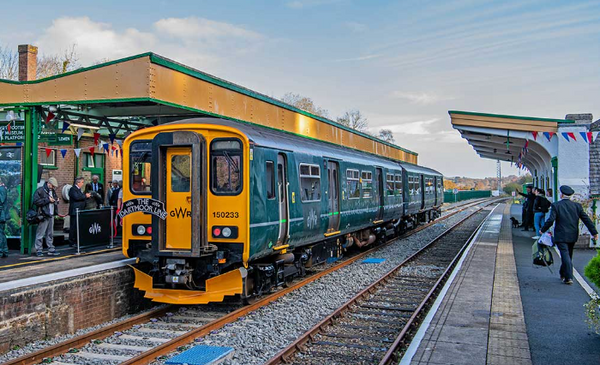Ministers urged to trial monthly ‘climate card’ in North of England





Campaigners and transport experts have called on the Labour government to trial a new monthly ‘climate card’ scheme that would simplify the train ticketing system, make fares fairer and encourage rail travel to help reduce emissions.
A new report argues that implementing the climate card in the North of England first would be an excellent first step for the Transport Secretary to address regional transport inequality and rebalance the national economy, which is one of Louise Haigh’s strategic priorities.
The report by consultancy Greengauge 21, commissioned by Greenpeace UK, sets out how a climate card could work as a subscription-based rail pass. For £49 a month, users would have unlimited access to train travel across Britain, with the exception of high-speed long distance services and London, where an add-on would apply.
This could save many rail users a considerable amount of money every month. For example, additional analysis by Greenpeace has found that rail season ticket holders for Stoke on Trent to Manchester pay an astronomical £379 per month. Season tickets between Liverpool Lime Street and Manchester Piccadilly or Victoria cost £260 per month, and for season ticket holders for Leeds to York it’s £278 per month. By comparison, on average cars cost £319 per month to run.
The report outlines that the rail fare system outside of London is unnecessarily complicated, confusing and expensive, leading to people losing trust in the system, and that the climate card would greatly simplify and make things fairer. Previous research has shown that in the North, transport spending is only £349 per person whereas in London, it’s £864.
The report predicts that the scheme could generate an additional 122 million rail trips a year, which would save 40 million car journeys, easing pressure on the country's overstretched highway network. This would result in a reduction of nearly 380 thousand tonnes of carbon emissions, helping to reduce the climate impact of transport, the UK’s most polluting sector.
Campaigners argue that the adoption of a climate card would also bring economic benefits across the country, helping people access jobs and allow businesses to expand their employee catchments. It would also encourage domestic and inward tourism, especially to less visited parts of the country.
The report outlines the lessons to be learnt from similar schemes introduced across Europe. For example, the introduction of Germany’s climate card, the Deutschland Ticket, saw an uptick of 28% percent in regional and local rail use in the first year, successfully encouraging people out of their cars with some giving up their cars entirely. The report argues there could be similar uptake on routes where the card is applicable in Great Britain and with minimal cost implications for the Exchequer as an increase in journeys would largely make up for the shortfall in revenue.
The report estimates that if the response in Britain is similar to that experienced in Germany, rail revenue could decline but only slightly, by just £45m per year - less than half of one percent of total rail revenue in 2023. At the other end of the spectrum, a more pessimistic estimate based on a different pattern of take-up could lead to a loss of £637m annual revenue. But to put this into perspective, the fuel duty freeze by previous governments has cost around £9bn per year in lost revenues, according to the IFS.
Transport is the country's largest polluting sector, and tackling this should be high on the new government’s agenda, say campaigners. They argue that encouraging more train use would help the climate, give us healthier air, as well as easing costs for consumers.
Paul Morozzo, Greenpeace UK’s senior transport campaigner, said: “Our current rail fare system is far too complicated, confusing and expensive - it’s time to redesign it with passengers in mind. A monthly climate card would simplify the ticketing system,save commuters hundreds of pounds per month and cut emissions - a triple win.
“Our car-dependent transport sector is the largest emitter of planet-heating gasses in the country, as well as harming people’s health with toxic fumes. To solve the problem, we need to encourage people off our congested roads and onto public transport, and introducing a climate card could do just that.
“Today we are calling on the Transport Secretary to create a climate card for Britain, and trial it in the North of England first. If Labour are looking for a bold idea that helps people with the cost of living, tackles the climate crisis, and evens out regional inequalities, this could be it."
Greengauge 21 Director, Jim Steer, said: “Across Europe, nations are adopting a Climate Card, offering public transport travel on a monthly subscription basis. We were delighted to be asked by Greenpeace UK to discover whether a similar approach could work here.”
“Our report seeks to learn lessons from our near neighbours and offer an opportunity to bypass today’s muddle of rail fares and stimulate a switch to public transport”
“We suggest it would be best to start in the English regions away from the South East - which dominates the nation’s rail use currently.
“The next step could be for the newly fashioned Great British Railways to be given the task of looking into a climate card as a way of boosting regional economies within the timescale of this Parliament.”